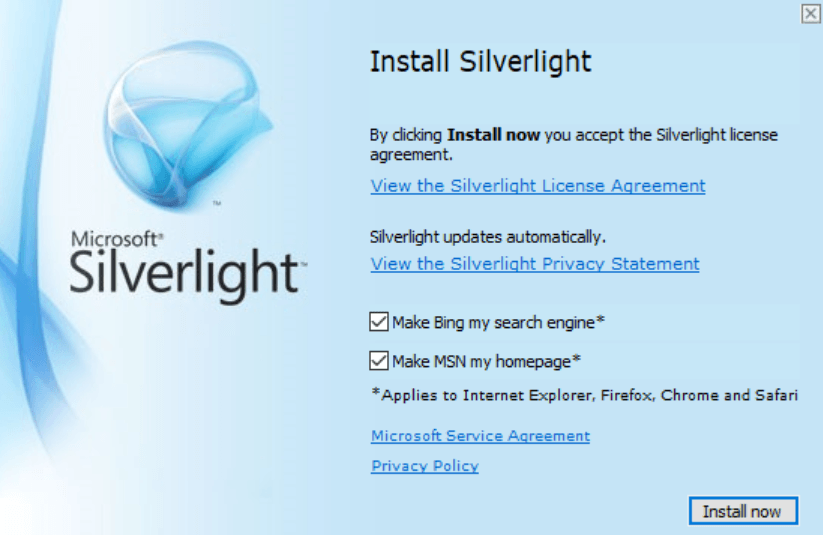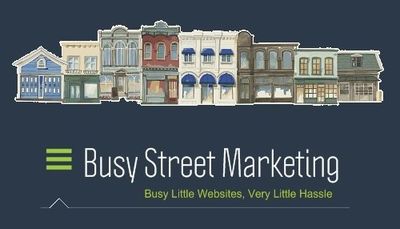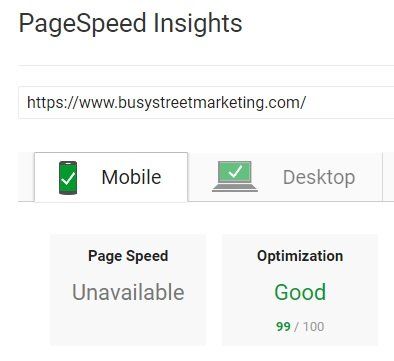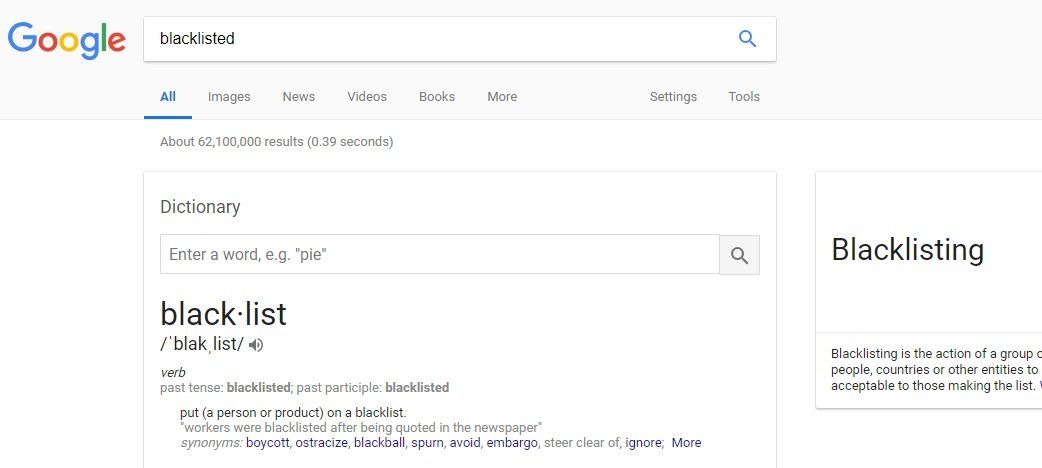The Problem with Fast and Easy SEO
- By info@busystreetmarketing.com
- •
- 19 Jun, 2018
- •
Old School may be hip when it comes to music, but not for website SEO
Lately there's a recurring theme among some of the business owners I've talked to: They hired a digital marketing company to build them a website and raise their rankings in organic search. Then they look at their websites and go "Why do I have this big ugly list of towns at the bottom of my website? That looks ridiculous!" or "Why does my home page seem to say the same thing over and over in a slightly different way?"
This tactic is called keyword stuffing. The reason that some digital marketing companies do this is to game the system and trick Google into raising their customer's pagerank, but these old school tactics are becoming way less effective. Google's webmaster resource page describes it like this: "Keyword stuffing is the practice of loading a webpage with keywords or numbers in an attempt to manipulate a site's ranking in Google search results. Often these keywords appear in a list or group, or out of context (not as natural prose)." Unfortunately, it looks ridiculous and does not provide a good experience when people click through to your site. Google has decided, and rightfully so, that this kind of thing is not helpful to people searching. It is a cheezy trick used to help raise a site's ranking, but let's face it, you can get found all day long, but if I get to your site and you sound like an idiot, what good is that?
This tactic is called keyword stuffing. The reason that some digital marketing companies do this is to game the system and trick Google into raising their customer's pagerank, but these old school tactics are becoming way less effective. Google's webmaster resource page describes it like this: "Keyword stuffing is the practice of loading a webpage with keywords or numbers in an attempt to manipulate a site's ranking in Google search results. Often these keywords appear in a list or group, or out of context (not as natural prose)." Unfortunately, it looks ridiculous and does not provide a good experience when people click through to your site. Google has decided, and rightfully so, that this kind of thing is not helpful to people searching. It is a cheezy trick used to help raise a site's ranking, but let's face it, you can get found all day long, but if I get to your site and you sound like an idiot, what good is that?
Quality Guidelines for SEO
Google's quality guidelines explain in more detail why this is a bad practice: "Filling pages with keywords results in a negative user experience, and can harm your site's ranking. Instead, focus on creating useful, information-rich content that uses keywords appropriately and in context."
The problem with creating useful, information rich content, and why some digital marketing companies don't do it, is that it takes time and thought, two things that are evidently not in ample supply at a lot of big digital marketing companies. I know, there's some good SEOs out there, but by and large, many of these larger firms are like revolving doors, and so there's a lot of "fresh" talent onboard, ironically, being taught to apply stale SEO tactics.
In talking with my SEO clients, I find that they have a lot of great stories to tell: success stories, horror stories, hopes and dreams, lessons learned. They have so much knowledge about their trade, their products and their industry. They do business all day long with other business people who also share ideas about how to win. They are constantly learning and they have so much to say that could be helpful and meaningful to their clients. Why can't SEOs use that info on their websites? Why instead are they using horribly bland, repetitious, generic web content in hopes it will fool Google into raising the client's pagerank? There's probably a lot of reasons; none of them good.
The problem with creating useful, information rich content, and why some digital marketing companies don't do it, is that it takes time and thought, two things that are evidently not in ample supply at a lot of big digital marketing companies. I know, there's some good SEOs out there, but by and large, many of these larger firms are like revolving doors, and so there's a lot of "fresh" talent onboard, ironically, being taught to apply stale SEO tactics.
In talking with my SEO clients, I find that they have a lot of great stories to tell: success stories, horror stories, hopes and dreams, lessons learned. They have so much knowledge about their trade, their products and their industry. They do business all day long with other business people who also share ideas about how to win. They are constantly learning and they have so much to say that could be helpful and meaningful to their clients. Why can't SEOs use that info on their websites? Why instead are they using horribly bland, repetitious, generic web content in hopes it will fool Google into raising the client's pagerank? There's probably a lot of reasons; none of them good.
The Future of SEO - Write Good Stuff That Humans Might Read
Rand Fishkin (Moz) said something very similar to this a few years ago. He visited Portsmouth NH on a "Mozcation" where he told the hundred or so digital marketers in attendance that the future of SEO is very simple: delight your customers. The good news is that online search is getting smarter. Googlebot algorithms like RankBrain are mapping our search queries into entities which are not simple keywords, but clusters of words that have a better chance of matching the query. RankBrain attempts to guess what we humans mean, even if it's not an exact match, using similar words and then records the results, adapting the results over time to provide better and better SERPs when we search. This is becoming increasingly important as more and more searches are coming from audio queries on smartphones using Alexa and Siri. There's a vast difference between speaking into your phone saying: "Hey Siri, where's the best plumber near me" and typing "NH plumber" as an example.
Google and Artificial Intelligence
There's some controversy over the ethical implications of a big company like Google using AI... for any reason. Personally, I am glad that the largest internet search engine company is employing some artificial intelligence to provide a better search experience. Hey! I got an idea: what if some of these big digital marketing companies employed some artificial intelligence of their own to writing script for websites? It is bound to be better than a lot of the weak old school game-the-system tactics we, and our clients are seeing.

In my work, I often get asked questions that have nothing to do with marketing. At first, I was going to say that this was one of those questions, but technically, it does: "How did I get Bing on my computer?" It's software that's so useless, they can't even market it. No one would actually search for it and intentionally use it. It's so bad, they can't even give it away. Overlookware is software that is so lousy, they have to sneak it past you while you're trying to install something useful of theirs. They are hoping you don't notice or that you are too lazy to remove it.







